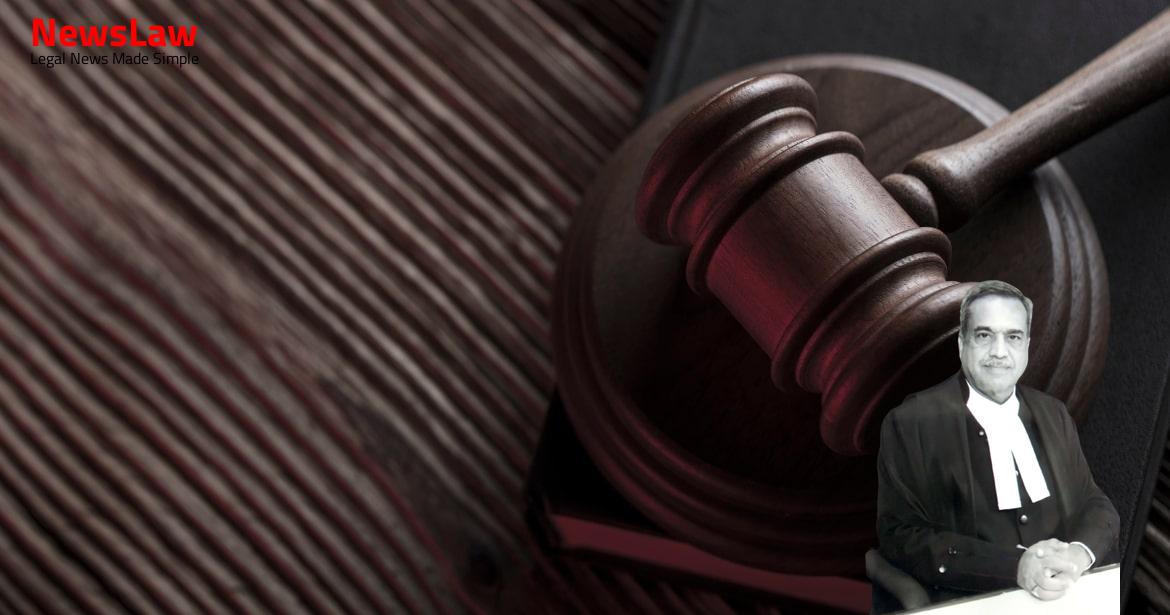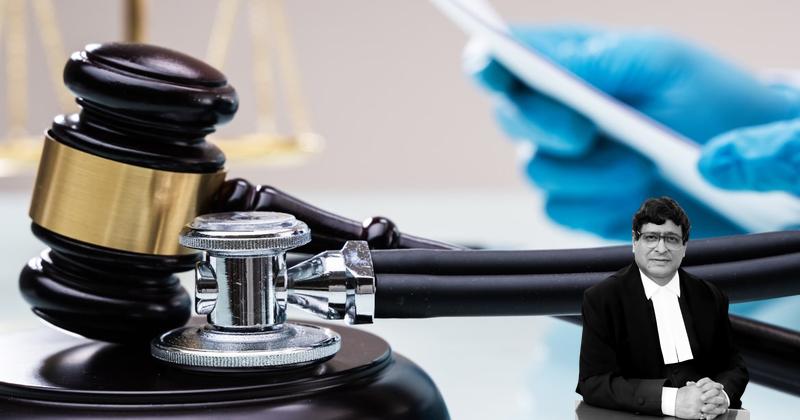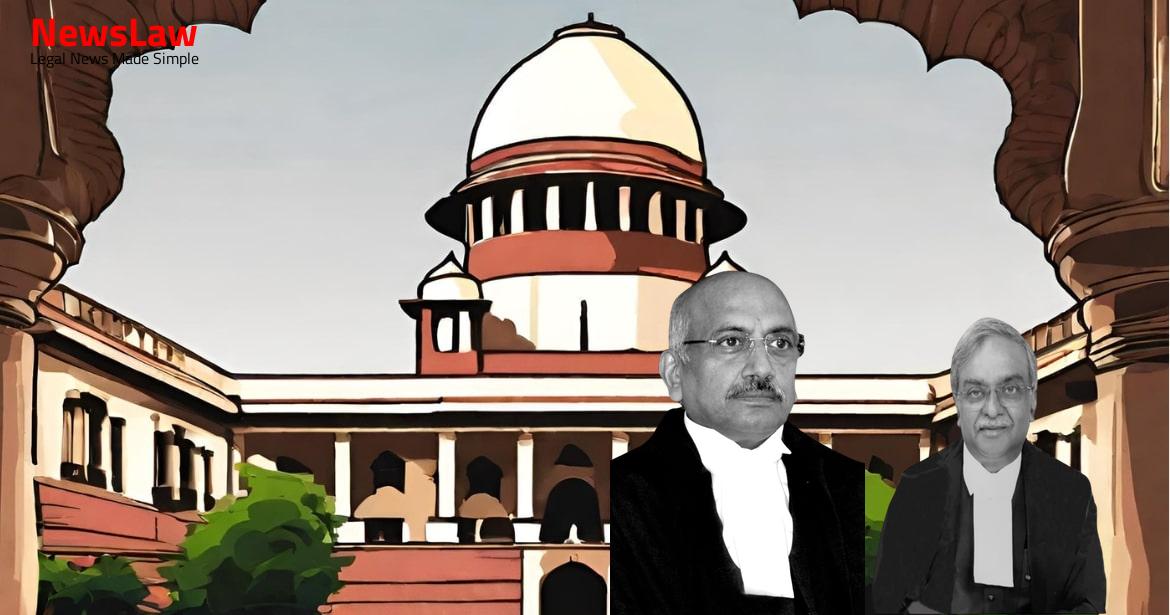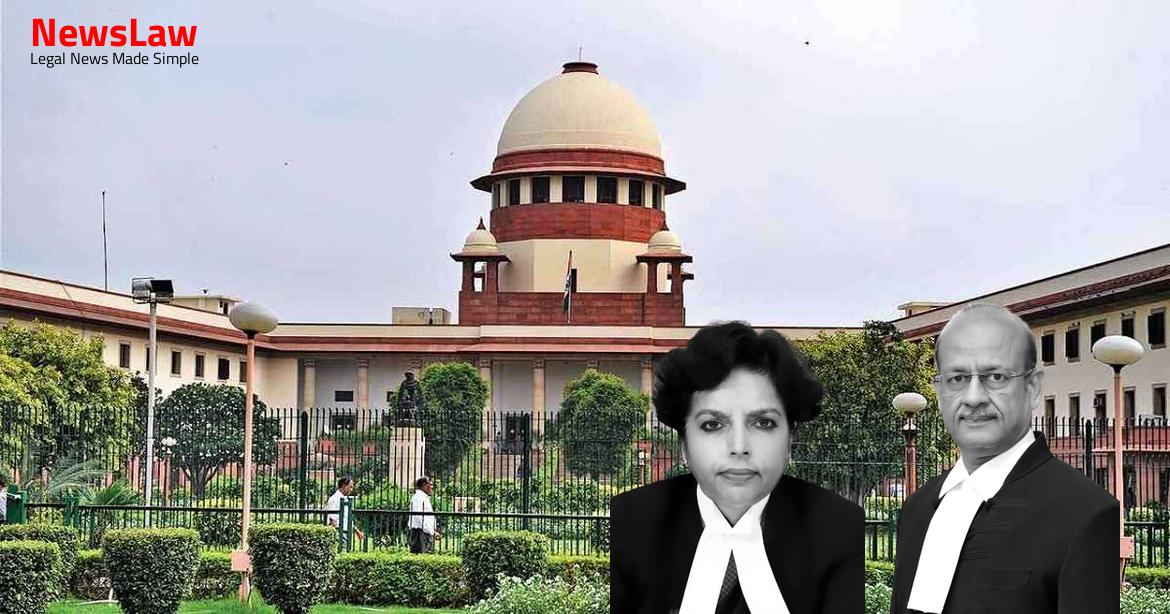Delve into the intricate legal analysis conducted by the court in a high-profile withdrawal of prosecution case. The court examined various aspects such as the application of Section 321 of the CrPC, immunities and privileges of legislators, and the implications of constitutional provisions. This analysis is essential for understanding the complex legal considerations that shape the administration of justice.
Facts
- The Motion of No Confidence in the Lok Sabha against the minority government of Shri P V Narasimha Rao occurred on 26 July 1993.
- The support of fourteen members was required to defeat the No Confidence Motion.
- During the budget presentation in the Kerala Legislative Assembly on 13 March 2015, certain MLAs protested leading to damage of public property.
- A prosecution was initiated against the accused MLAs for disrupting the Assembly session and damaging furniture.
- The investigating officer failed to record statements of natural eye witnesses despite permission from the Speaker.
- An application was filed seeking to withdraw the case against all accused under Section 321 of the CrPC.
- Reasons cited for withdrawing the prosecution included immunities and privileges of MLAs, lack of evidence, and breach of privilege falling under the Speaker’s jurisdiction.
- The prosecution’s withdrawal also considered the protected ‘protest’ by MLAs under Article 194(3) of the Constitution of India.
- The trial of the accused MLAs without the sanction of the Speaker was deemed to lower the Assembly’s dignity and affect public interest.
- The High Court rejected the argument of the State that prosecuting the MLAs would lower the prestige of the Assembly and impact public interest.
- The conduct of the MLAs was not in furtherance of a free democracy and did not warrant invoking the immunities and privileges granted to MLAs.
- There is no provision in the Constitution or the Rules of Procedure and Conduct of Business in the Kerala Assembly mandating police to seek permission from the Speaker before registering a crime against the MLAs.
- Arguments regarding the inadequacy of evidence for successful conviction should be raised by the accused while seeking discharge before the Magistrate, per the judgment in Sheonandan Paswan vs State of Bihar & Ors.
- The High Court affirmed the concurrent findings of the High Court and the Trial Court and rejected the application for withdrawal of prosecution under Section 321 of the CrPC.
- The High Court observed that the application under Section 321 of the CrPC had been rejected by the CJM for valid reasons.
- The High Court also considered the implication of the disciplinary action taken by the Ethics Committee of the Legislative Assembly on the withdrawal of prosecution under Section 321 of the CrPC.
Also Read: Electoral Malpractices in Mayor Election
Issue
- Before the Constitution Bench, a question was raised regarding the protection of legal proceedings against MPs under Article 105(3) of the Constitution.
- The question pertained to whether the privileges and immunities granted under Article 105(3) would apply to the legal proceedings against the MPs for anything said or vote given by them.
- The specific issue revolved around the interpretation of Article 105(3) in relation to legal actions taken against Members of Parliament.
Also Read: Balancing Power and Transparency: Electoral Bonds Struck Down, Disclosure Mandated
Arguments
- The appellants argue that prior sanction of the Speaker is necessary to initiate a prosecution against members of the House for offenses committed inside the House.
- They rely on the case of P.V. Narasimha Rao to support their argument.
- The Speaker, as the presiding officer of the House, is seen as having the authority to make decisions regarding the functioning and decorum of the House.
- Chapter IV of the Rules of Procedure and Conduct of Business in the Kerala Legislative Assembly outlines the Speaker’s role in presiding over the House and ensuring smooth conduct of business.
- The appellants also cite the case of Satish Chandra vs Speaker, Lok Sabha to assert that the Speaker’s powers include sanctioning proceedings against members of the Assembly.
- The video recording obtained without consent lacks certification under Section 65B of the Indian Evidence Act 1872.
- The incident occurred on the floor of the House and constitutes a ‘proceeding’ of the House.
- The video recording of the incident on 13 March 2015 was procured by investigating authorities from the Electronic Control Room of the House.
Also Read: Recall of Resolution Plan Approval: Legal Analysis
Analysis
- Article 194 of the Constitution guarantees freedom of speech in the legislature of every State, subject to constitutional provisions and standing orders.
- Public prosecutors must independently decide on seeking consent to withdraw from prosecution, ensuring it is in the interest of public policy and justice.
- Courts must scrutinize reasons for withdrawal of prosecution to prevent interference with justice and ensure it serves the administration of justice.
- When deciding on withdrawal, courts consider factors such as the nature of the offense and its impact on public life, especially in cases involving public funds or trust.
- The court’s function in consent to withdrawal is described as supervisory and judicial, ensuring it aligns with principles of law and justice.
- Courts may interfere in cases of failure to apply correct principles, ensuring a fair and just decision.
- Articles 105 and 194 of the Constitution provide privileges and immunities to Members of Parliament and MLAs respectively.
- Freedom of speech is guaranteed in Parliament and State legislatures, with provisions for immunity during proceedings.
- Section 321 allows public prosecutors to withdraw from prosecution with court consent, aiming to further public justice.
- The Prevention of Damage to Public Property Act 1984 penalizes offenses related to public property, with specific provisions for imprisonment and fines.
- The Court examined the issue of whether the intervention sought by the prosecution to withdraw the case was justified.
- The concept of immunity for legislators from criminal proceedings was discussed, emphasizing that privileges and immunities do not exempt them from general laws, especially criminal laws.
- The Court highlighted the serious nature of the alleged offenses, including destruction of public property, and the need to uphold the rule of law.
- The role of the Public Prosecutor in seeking withdrawal of prosecution was scrutinized, focusing on the interests of justice and public policy.
- Various constitutional provisions and amendments related to legislative proceedings, publication, and immunity were analyzed.
- The significance of obtaining proper certification and adherence to legal procedures in handling evidence was emphasized throughout the analysis.
- The Court referred to past cases and legal precedents to underline the importance of upholding probity in public life and ensuring justice is not compromised.
- Legal arguments regarding the application of Section 321 of the CrPC and the role of the Speaker in granting permission for withdrawal of prosecution were evaluated in detail.
- The analysis also delved into the evolving definition of ‘publication’ in the context of legislative proceedings and broadcast of such proceedings through technological means.
- The Court emphasized that the withdrawal petition under Section 321 of the CrPC must be scrutinized to ensure it has not been improperly exercised or used for illegitimate purposes
- The Court must ensure that the withdrawal petition is in the interest of public policy and public interest, and not to hinder the normal course of justice
- The true function of the court in considering a withdrawal petition is to ensure that the public prosecutor has acted independently and in good faith
- The Court must ascertain whether the withdrawal petition serves the broader ends of public justice and is not extraneous to the vindication of the law
- It is crucial to ensure that the withdrawal of prosecution is legitimate and initiated for valid reasons in line with the purpose of seeking it
- The High Court referenced the minority opinion of Chief Justice Bhagwati in Sheonandan Paswan case
- The court considered these observations as the view of the court
- The mentioned observations were treated as significant in the decision
Case Title: THE STATE OF KERALA Vs. K.AJITH (2021 INSC 366)
Case Number: Crl.A. No.-000697-000697 / 2021



